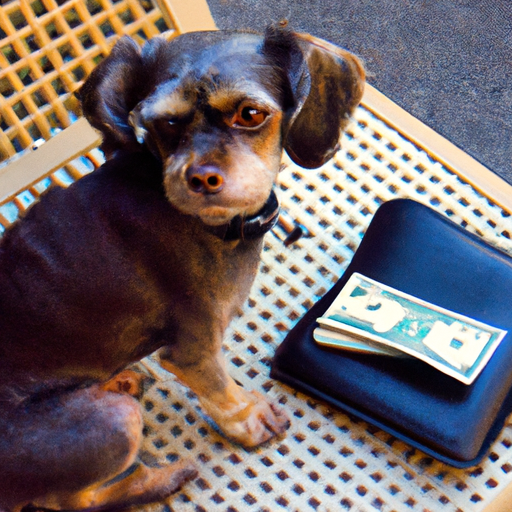Bringing a dog into your family is a decision that’s filled with joy and excitement. However, it’s also a commitment that comes with financial considerations. The cost of owning a dog goes beyond the initial adoption or purchase price. It includes a range of expenses, from food and healthcare to toys and grooming. This guide will provide a comprehensive overview of the costs associated with dog ownership.
Table of Contents
- Initial Costs
- Ongoing Costs
- Unexpected Costs
- Cost-Effective Tips
- Frequently Asked Questions
Key Takeaways
- The cost of dog ownership involves more than the initial purchase or adoption fee.
- Routine healthcare, food, and grooming are significant ongoing costs.
- Unexpected costs, such as emergency veterinary care, can be substantial.
- Strategies like adopting from a shelter and preventive healthcare can save money.
- It’s important to consider the full financial commitment before bringing a dog into your home.
Initial Costs
Getting a dog, whether through a breeder or a shelter, involves certain upfront costs. These include the actual cost of the animal, initial veterinary fees for vaccinations and check-ups, and essential supplies like a crate, leash, and food and water bowls.
- Purchase or Adoption Fee – This can vary widely, from as little as $50 to adopt from a shelter, to several thousand dollars for a purebred puppy from a reputable breeder. A middle-of-the-road estimate might be around $500.
- Initial Veterinary Fees – Your new pet will need a check-up, vaccinations, and possibly spaying or neutering. These costs can range from $200 to $500.
- Initial Supplies – A crate, leash, collar, food and water bowls, some toys, and a bed will likely cost around $200.
Ongoing Costs
Beyond the initial investment, there are numerous ongoing costs to consider. These include food, regular veterinary care, pet insurance, toys and treats, grooming, and potentially professional training or doggy daycare.
- Food – The cost of food can vary widely based on your dog’s size and dietary needs. On average, expect to spend around $250 to $700 per year.
- Routine Veterinary Care – Regular check-ups and vaccinations can cost around $200 to $400 per year.
- Pet Insurance – Insurance costs can vary based on your pet’s breed and age, but expect to pay around $200 to $600 per year. Check out this guide to pet insurance for more information.
- Toys and Treats – Dogs need mental and physical stimulation. Expect to spend around $50 to $200 per year.
- Grooming – Depending on your dog’s breed, grooming costs can range from $30 to $500 per year.
- Training or Daycare – These services can be a significant expense, often costing $500 to $1000 per year.
Unexpected Costs
While it’s important to budget for the expected costs of dog ownership, it’s equally crucial to be prepared for unexpected costs. These can include emergency veterinary care, damage to your home or belongings, and the potential cost of boarding your pet if you need to travel without them.
- Emergency Veterinary Care – This can range from a few hundred to several thousand dollars, depending on the nature of the emergency.
- Damage to Home or Belongings – Especially with puppies, expect some degree of damage. This cost is hard to estimate, but it’s a good idea to have a contingency fund.
- Boarding – If you travel frequently, boarding your pet can cost $20 to $50 per day.
Cost-Effective Tips
Dog ownership doesn’t have to break the bank. Here are some strategies to save money:
- Adopt, Don’t Shop – Adoption is usually much cheaper than buying from a breeder. Plus, shelters often cover the initial veterinary costs.
- Preventive Care – Regular check-ups and a healthy diet can prevent costly health issues down the line.
- DIY Grooming and Training – Learn to groom your dog at home, and consider at-home training methods. Websites like One Top Dog offer plenty of resources.
Frequently Asked Questions
- Can I afford a dog? – This depends on your financial situation. Consider all of the costs outlined above, and make sure you have a contingency fund for unexpected expenses.
- Are there ways to save money on dog care? – Yes, consider strategies like adopting from a shelter, preventive healthcare, and at-home grooming and training.
- What if my dog has a medical emergency? – Pet insurance can help cover the costs of emergency care. It’s also a good idea to have a contingency fund.
In conclusion, owning a dog is a significant financial commitment, but with careful planning and budgeting, it can be one of the most rewarding decisions you’ll ever make. For more tips and advice on dog care, check out these articles on dog grooming, dog training, and choosing the right dog food at One Top Dog.



